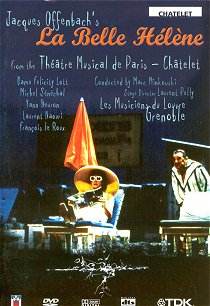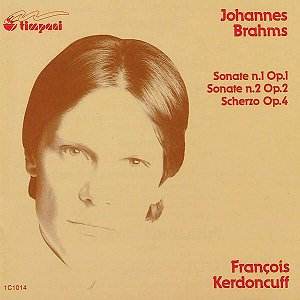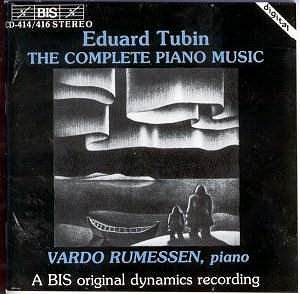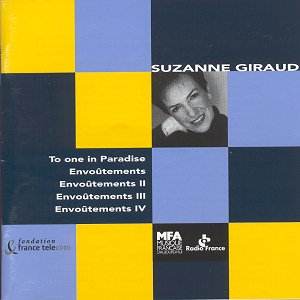 Composer: Jacques Offenbach
Composer: Jacques Offenbach
Works: La Belle Hélène
Performers: Dame Felicity Lott (Hélène), Yann Beuron (Paris), Michel Sénéchal (Ménélas), Laurent Naouri (Agamemnon), François Le Roux (Calchas), Marie-Ange Torodovitch (Oreste), Eric Huchet (Achille), Alain Gabriel (Ajax I), Laurent Alvaro (Ajax II), Hjördis Thébault (Bacchis), Stéphanie d’Oustrac (Leoena), Magali Léger (Parthoenis), José Canalès (Philocome)
Recording: TDK DV-OPLBH, 127 min. (opera), 26 min. (interviews)
Label: BRILLIANT
The operetta La Belle Hélène, a stunning work by Jacques Offenbach, showcases the composer’s unparalleled ability to merge buoyant melodies with satirical wit, capturing the absurdities of love and ambition amidst the backdrop of ancient Greek mythology. Premiering in 1864, this work remained emblematic of the frivolity and charm characteristic of the Belle Époque, challenging the grand narratives of its time by poking fun at the very gods and heroes that defined classical antiquity. The recent production at the Théâtre Châtelet, captured in this DVD recording, exemplifies Offenbach’s brilliance while also demonstrating the transformative power of modern staging.
Marc Minkowski leads Les Musiciens du Louvre with a vibrant and attentive conducting style that honors Offenbach’s light-hearted spirit while maintaining a rigorous musical integrity. His approach reveals the subtleties in Offenbach’s orchestration, especially in the overture, where the lively woodwinds and playful strings establish a festive atmosphere. Each musical number is imbued with freshness; for instance, the famous “Au fond du temple saint” is delivered with an infectious energy that elevates the humor of the text. The orchestra’s clarity and balance allow the singers’ voices to shine, particularly in the duet between Hélène and Paris, where the lush harmonies and playful exchanges are deftly executed.
The performance is further distinguished by the remarkable interpretation of Dame Felicity Lott, whose portrayal of Hélène is nothing short of enchanting. Lott’s voice, with its rich timbre and expressive phrasing, brings depth to Hélène’s emotional landscape, skillfully navigating the character’s blend of vulnerability and allure. Her comic timing is impeccable, particularly in the “Chanson de la Lune,” where she balances levity with poignancy. The production’s clever staging, notably the inclusion of modern visual elements such as the beach chairs and the “Odyssey Tours” guide, enhances the operetta’s commentary on desire and distraction, making it resonate with contemporary audiences.
The cast is uniformly strong, with Yann Beuron’s light tenor providing an appealing contrast to Michel Sénéchal’s seasoned baritone, which captures Ménélas’s comic desperation flawlessly. Laurent Naouri’s portrayal of Agamemnon adds a touch of gravitas, while François Le Roux’s Calchas offers a humorous counterpoint with his authoritative presence. The ensemble, comprised largely of young French singers, demonstrates a commendable precision and clarity, indicative of the rigorous training within the French conservatory system, particularly evident in the well-coordinated choral segments that punctuate the action with vibrant energy.
The technical aspects of the recording are commendable, with the sound quality reflecting a meticulous attention to detail. The stereo mix enhances the spatial dynamics of the performance, allowing the nuances of both the orchestral and vocal lines to be fully appreciated. Subtitles in multiple languages facilitate accessibility, ensuring that the humor and charm of the libretto are not lost in translation.
This production of La Belle Hélène stands out not only for its stellar cast and invigorating interpretations but also for the way it breathes new life into a classic operetta. The combination of Minkowski’s lively conducting, Lott’s exquisite performance, and the inventive staging guarantees that viewers will find both delight and substance in this rendition. It is a testament to Offenbach’s enduring legacy, illustrating that even amidst the lightness of operetta, profound truths about love and identity can emerge, making this DVD a worthy addition to any classical music library.



